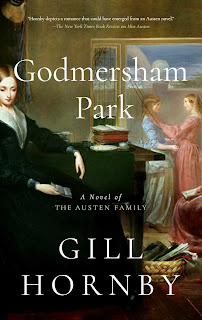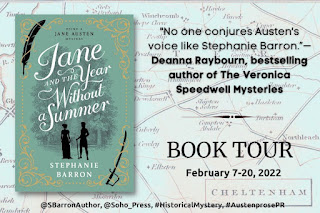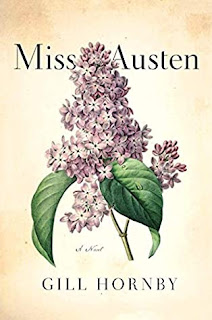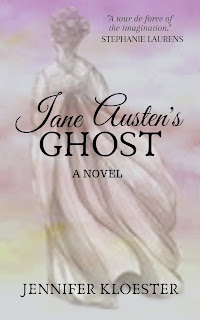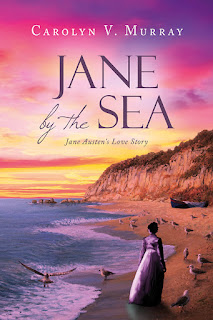This week I have been joined by Jane Odiwe, author of 'Jane Austen Lives Again', who gave us a guest post and excerpt from the book. Jane is also offering an international paperback giveaway to two lucky readers here. You can gain one entry to the giveaway by commenting on
Jane's post, and another by posting on this review post.
My review:
Many an Austen fan has grieved the fact that Austen died at the age of only 41. We will never know if she had more wonderful stories to enrich our reading time, and if she’d outlived her sister Cassandra there may have also been a far larger selection of letters for us to get to know Austen better, since Cassandra destroyed a large proportion of them. But what if, through pioneering medical treatment (involving immortal jellyfish!), Jane didn’t shuffle off this mortal coil in 1817 but instead wakes alive and well in 1925! In appearance, she is about 21, but she has her previous memories of her life. Jane has had a short time to catch up with the major changes in the world, advances in technology and so-on. She isn’t that worried about feeling like a fish out of water, because as a studier of character she believes that people will still have the same motivations more than a hundred years after her time:
‘Though the people she saw were dressed in the fashions of the day, Jane was sure they were still the same in essentials. Human nature didn’t alter, even if their clothes, their hairstyles and their use of slang changed. People still loved and hated, won and lost, struggled, succeeded or sank.’
Unfortunately, due to the financial costs of her medical treatment being far higher than Cassandra could have anticipated, Jane is forced to get a job and finds a placement with a family. She believes at first that she has been employed as a governess to five small girls, however, upon her arrival at the house she becomes acquainted with the truth, which is that all her ‘charges’ are in fact, grown women, and some of them are (in appearance at least) older than Jane! Jane’s task is to help direct them. There are 6 offspring in all; the elder three, Will, Alice and Mae, are from Lord Milton’s first marriage, and the younger three, Beth, Emily and Cora are from his second marriage, to the very attractive Lady Milton. Jane is only employed to assist Lady Milton in managing the girls. Lady Milton is very keen to marry them off if possible, but she is somewhat despairing of the elder two girls at least; Alice is stuck in the fashions of years ago and Mae is hostile towards her stepmother. Lady Milton’s own daughters are bringing her no comfort in their unmanageability either. Knowing that there were five sisters immediately sent my mind towards similarities with the sisters Bennet, but this is not the case; instead, when we get to know the girls it’s easy to see that they all resemble Austen characters, but not all from the same novel. You can see characters from at least four of Austen’s novels in these girls, and a nod to a fifth.
It’s extremely entertaining to see events played out that echo events from Austen’s novels, and it’s also fun to see that sometimes characters play different roles, so the same character can be in essentials a character from ‘Persuasion’ but also play a part that happened in ‘Emma’, for example. I would add a word of caution here, because while it’s entertaining for an Austen aficionado to look for nods to Austen’s other works, if you are unfamiliar with them the large cast of characters may prove really confusing, because there are many characters who are introduced close together, and it might be hard to remember the state of relations between them all.
 |
| 'Jane Austen at Her Desk' by Jane Odiwe |
Jane Odiwe is a very skilled artist; her pictures are just wonderful, and she really paints a picture with words here. The descriptive passages are just marvellous, described so visually that it was easy to imagine them, and this was an aspect of the book that I thoroughly enjoyed:
‘They were ascending out of the valley when she saw her first glimpse of the sea, a slice of lavender ribbon under an oppressive sky, and as the wreathed along the cliff top road she saw the greater expanse below, white horses crashing down on the beach, and a strip of sand stretching along an endless coastline.’
Jane Austen finds a place in this interesting family, and while learning about them, comes to terms with some things she finds out about herself. She is going through a huge adjustment in settling in a new area with new people and added to this she has the huge upheaval of settling in to a new time, with the change in societal norms. Through this, Jane still manages to retain her humour:
‘She felt quite shocked that she wasn’t at all horrified by anything he’d learnt that morning and began to feel her morals must be already corrupted.’
I would think that the hardest part in being transplanted to another time would be leaving your loved ones behind. We all know how hard it is when a loved one dies; how it hits you that you’ll never be able to tell them about something that’s happened, how you miss just the everyday interactions and knowing that they are there for you and care about you. By essentially travelling in time, Jane has outlived all of her loved ones and acquaintances. It must be akin to everybody you know suddenly dying. I can’t imagine how displaced that would make you feel. Jane doesn’t really dwell on this, but sometimes thoughts of the loss of the life she has left behind understandably overwhelm her:
‘It was silly to be so stirred up and emotional at thought of the past, but she was overwhelmed by a sudden desire for all that she had ever known, and for all those she had loved. She longed to share a conversation with someone who spoke the same language in the cadences and timbre of her youth.’
The only downside of this book for me is that, with such a large cast of characters, so many of whom are destined to end up together, none of the romances have a lot of page time individually. I was particularly interested in Alice’s story, even more than Jane’s. These stories were more fleshed out than the others, some of which were only briefly touched on. I also felt that the pace of the story increased towards the end. However, conversely, I enjoyed how many nods there were to other Austen books, and took great pleasure in spotting each of the story threads. I thoroughly enjoyed this book. It was excellently entertaining, and I’d rate it as a 4½ star read. I’d recommend it to any Austen fan, but particularly those who also enjoy stories set in the early part of the twentieth century.
*I received an ebook of this story from the author for my honest review.
Giveaway time!
As I said at the beginning of the post, Jane Odiwe is offering to give away a paperback copy of 'Jane Austen Lives Again' to two readers here. To enter, just leave a comment on the
giveaway post by the end of the day on
Monday 20 June, and for a
bonus entry, comment on this post too. This giveaway is open internationally. Please leave a way for me to contact you in case you're the winner, so you don't miss out on your prize.


.jpg)
